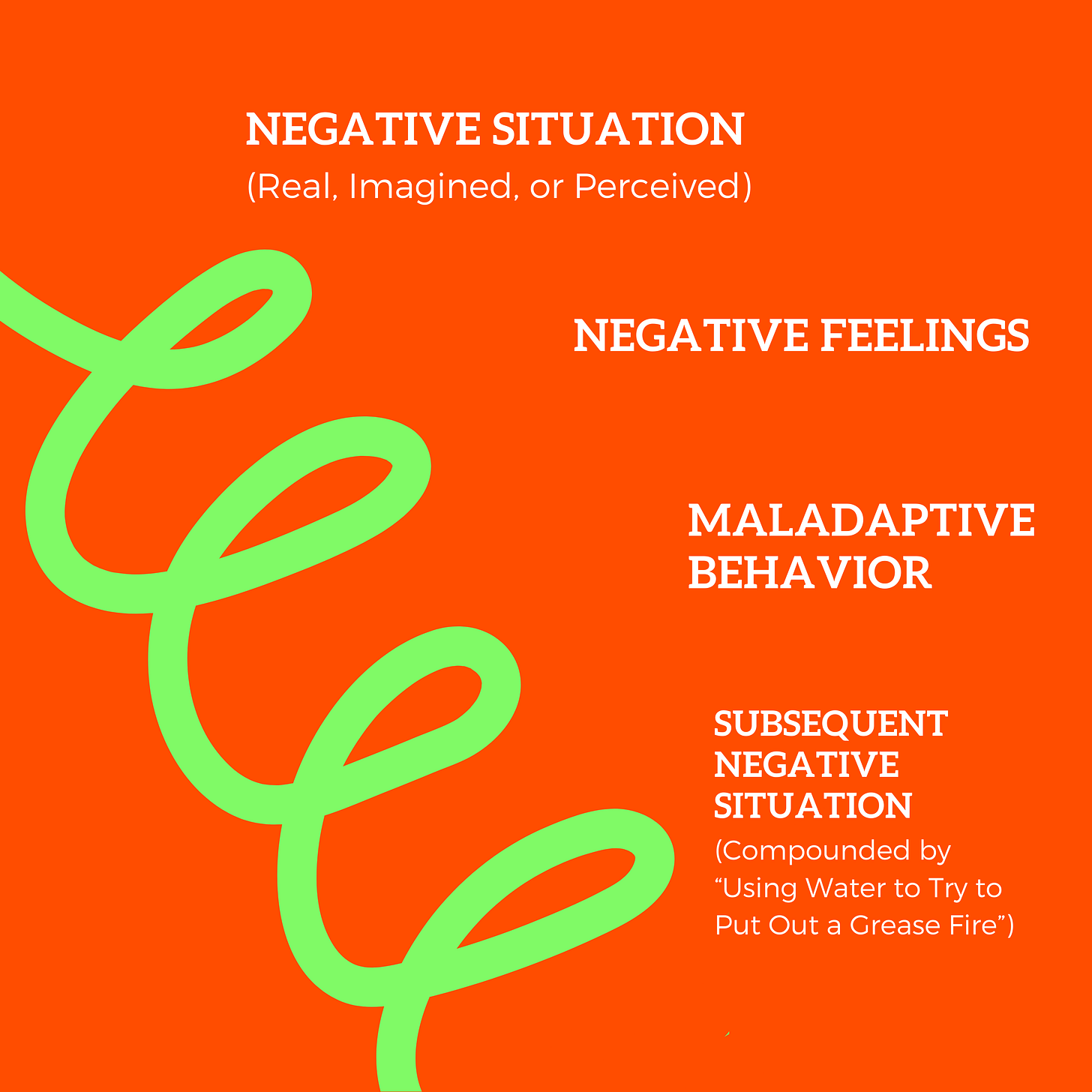Field Notes
Dodo Sighting
The dodo-bird verdict has haunted the literature on psychotherapy outcome since its early beginnings. It is based on the counter-intuitive finding that often highly diverging treatments do not differ much in effectiveness. There is evidence that much of the common effect of different treatments can be related to unspecific factors as opposed to treatment-specific techniques. “The Dodo-bird Debate, Empirically Supported Relationships and Functional Analytic Psychotherapy” Luc Vandenberghe and Ana Carolina Aquino de Sousa, International Journal of Behavioral Consultation and Therapy
Yesterday, I enjoyed my first meeting with my psychological coach, Dr. Gregg Henriques.
There are three assumptions with which we are beginning. One is the ESP-A model of consciousness, which I have already written about here.
Another is the Triple Negative Loop — the idea that how we think can get us into trouble by creating a negative feedback loop where we make bad decisions based on negative feelings caused by unhelpful framing. This falls right in line with issues of REBT and Cognitive Behavioral Therapy — some of which is addressed in SMART Recovery with exercises such as the ABC exercise.
Finally, there is the CALM-MO. MO stands for two things:
the “Meta” Observer — that ability for my consciousness to transcend its immediate context, becoming aware of itself via abstraction and
the “Modus Operundi” — the implementation of this awareness as a practice such that it becomes the standard operating principle when confronting difficult situations
This is achieved via an approach of
Curiosity
Acceptance
Loving Compassion &
Motivation Toward Valued States of Being
If these sound like they resonate with bits of therapy you’ve experienced, it’s because they do. Because these are coming from the project of a Unified Theory of Knowledge, these ideas integrate components of an array of psychological schools. The principle is that when an individual works with another and focuses on trying to make sense of experience, they are likely to find relief and improvement, irrespective to their therapist’s individual philosophy. From this vantage, components from every school can be tapped to assist with individual (and, by extension, collective) well being.
The thrill for me is that I already have a host of techniques from other places (Buddhism, SMART Recovery, AA, Recovery Dharma, Therapy, and a generally educated life) that I can implement intuitively within this framework. That is to say, I have the skills. Now it’s all about practice.
I hope your week is going swimmingly!
Affectionately,
Aaron




